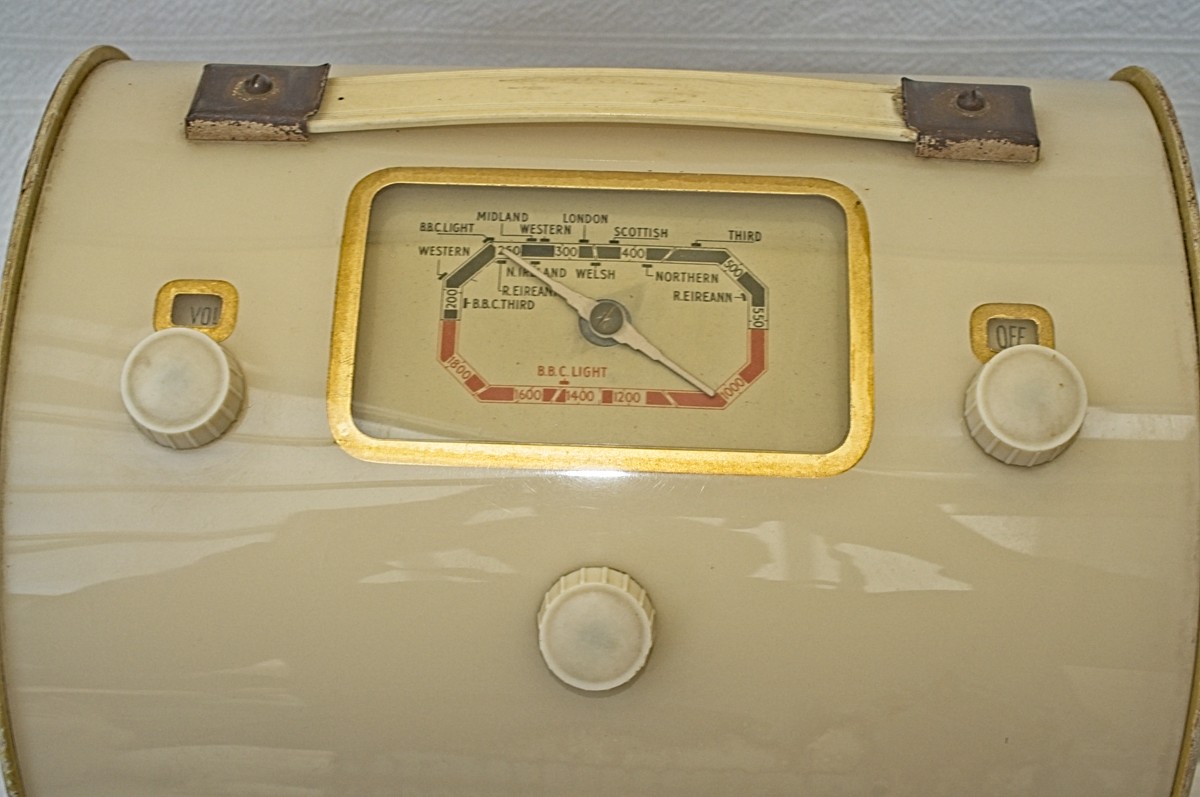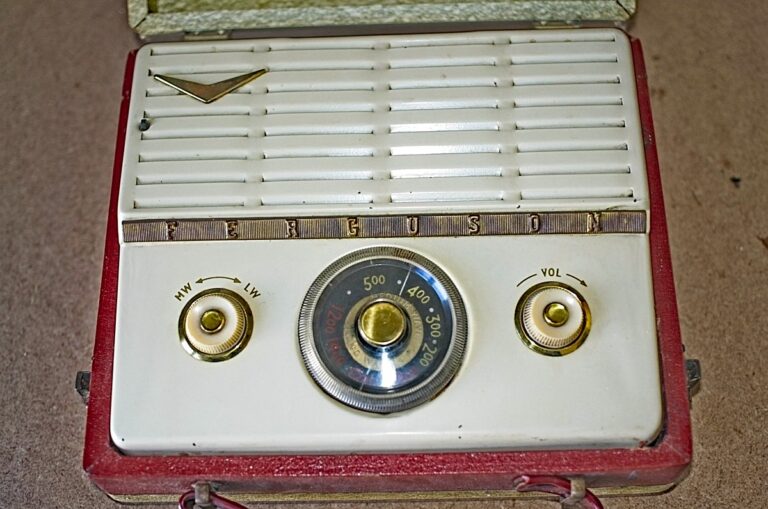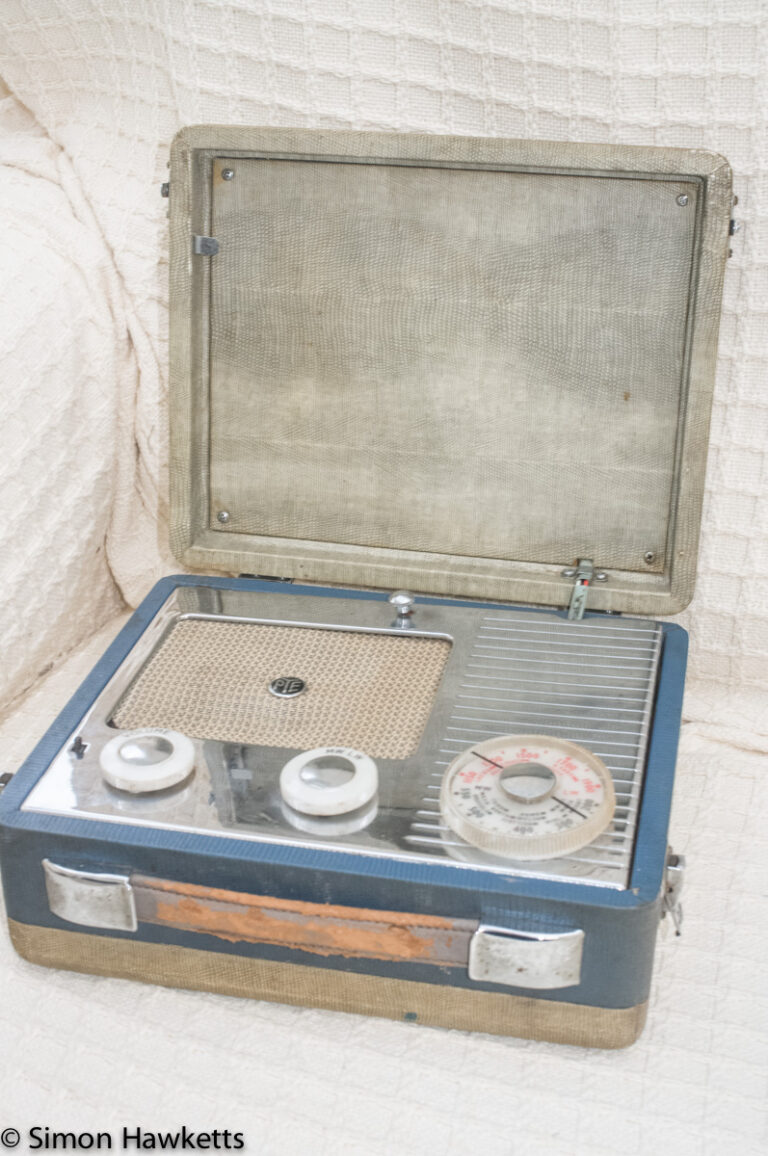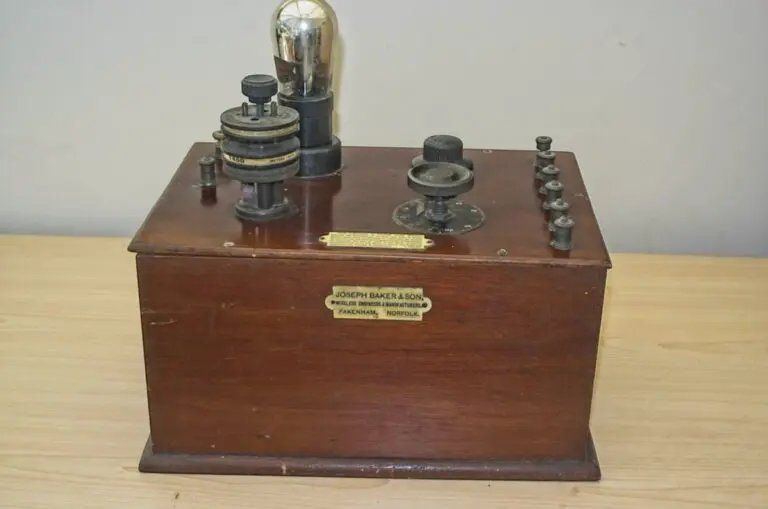The Beautiful Ever Ready Type C battery valve radio from 1953
The Ever Ready Type C radio that I’m writing about in this article seems to me to sum up radio design in the years just following the second world war. Gone are the pre-war heavy, wooden boxes, and instead it’s made with modern materials, has a sleek modern design, and can be taken out with you on days away from home because it’s battery driven.
My Ever Ready Type C vintage radio
I found this radio set on eBay whilst I was looking around to see if anything interesting had come up to add to my Vintage Radio collection.
I’d seen examples of this design before on eBay, and was very interested in buying one, but the copies I’ve seen up to this point had all suffered from either cracks in the bodywork, or very high prices (and in one case both of those problems).
I was therefore very pleased when I found an example that seemed to be both intact and at a very reasonable price. It was a few days after Christmas when I found it, so I assumed it would probably take until the new year to be delivered, and I paid the ‘Buy it Now’ price.
As it turned out, the seller packaged the unit up the same day I purchased it and the radio was on the road that evening, so I expected it a couple of days later. However, things didn’t turn out as expected.
I kept an eye on the tracking for the package, and on Jan 4th it moved to ‘Out for Delivery’, so that’s when I expected it, but it didn’t turn up on the 4th, and when I looked at the tracking again, the message had turned to ‘Held, Large Package, allow 48 hours’.
I did a Google search to try to find out what that meant, and it seems it’s when a parcel is too large to fit in the delivery vehicle and needs to wait for a van. So I waited for about 5 days and when the parcel didn’t turn up I contacted the seller to see about a refund on the basis that the parcel had been lost. We agreed to wait a few more days, and finally on 17th January, I’d had enough and was going to message the seller again when, much to my surprise the radio turned up!
When I unpacked it I found the courier had managed to damage one of the sides of the radio, even though it was very securely packaged in bubble wrap and cardboard, but other than that the radio was in good condition for a set that’s nearly 70 years old.
Photos of the Ever Ready Type C Radio set
This gallery shows a few photos of the Type C radio set.
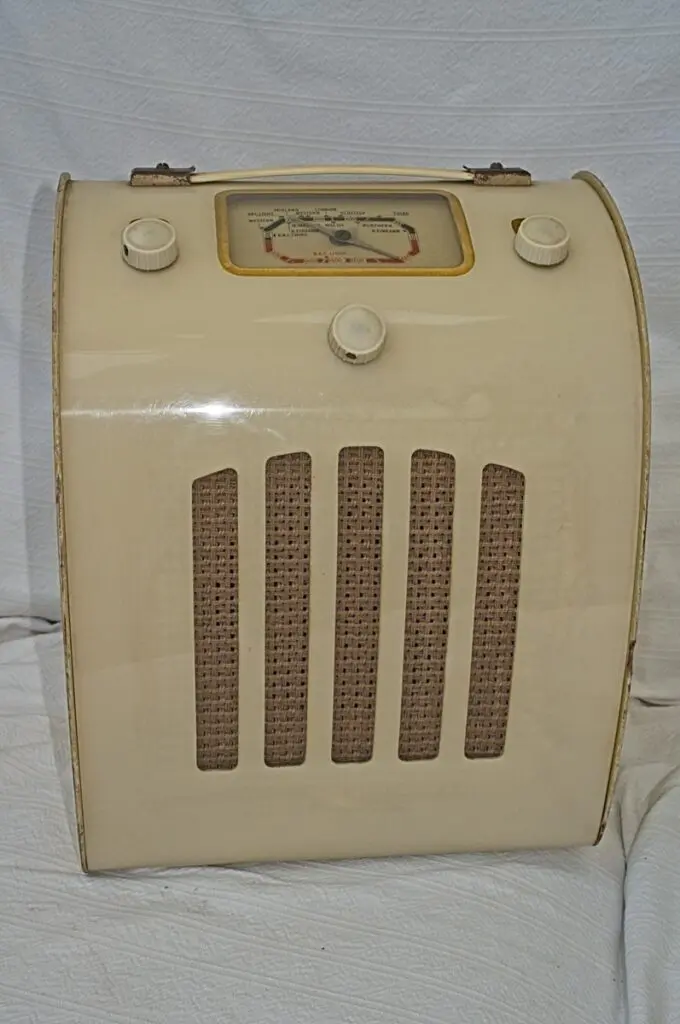
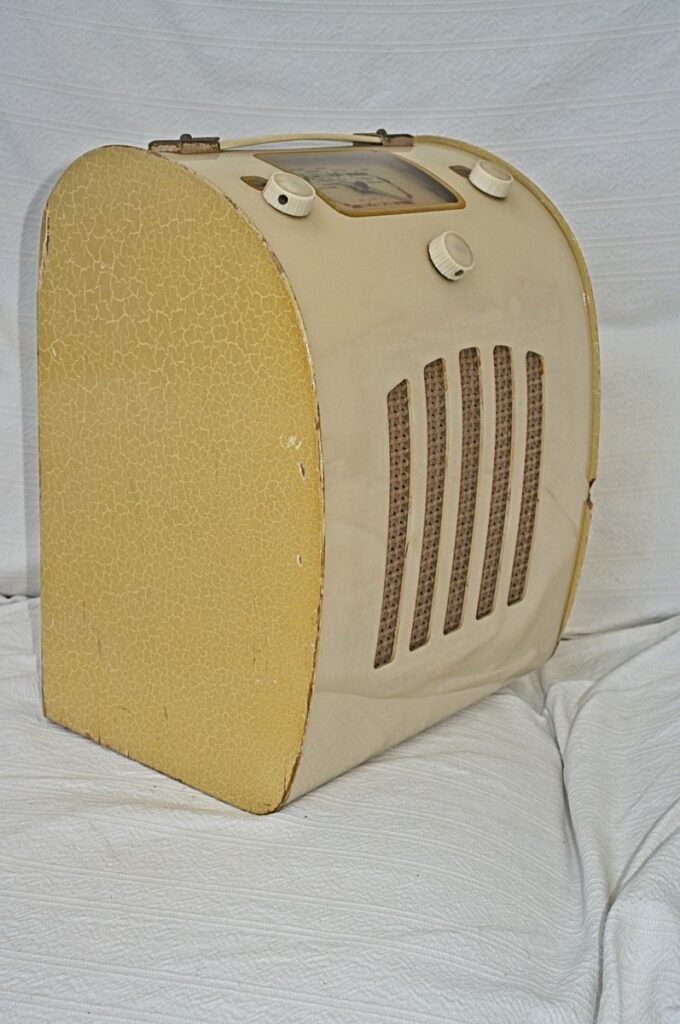
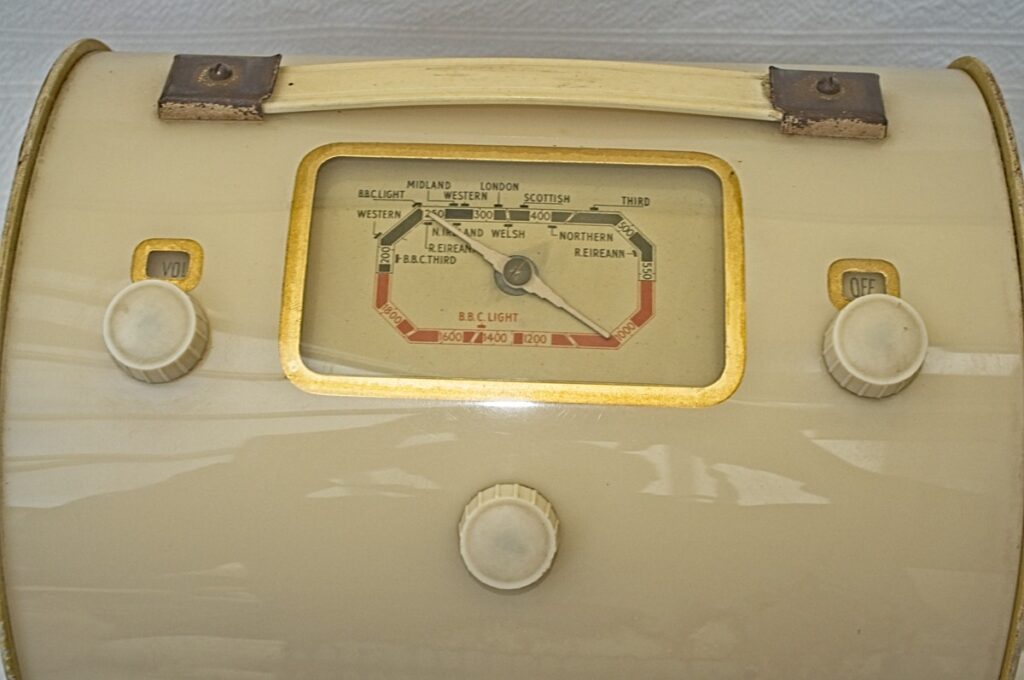
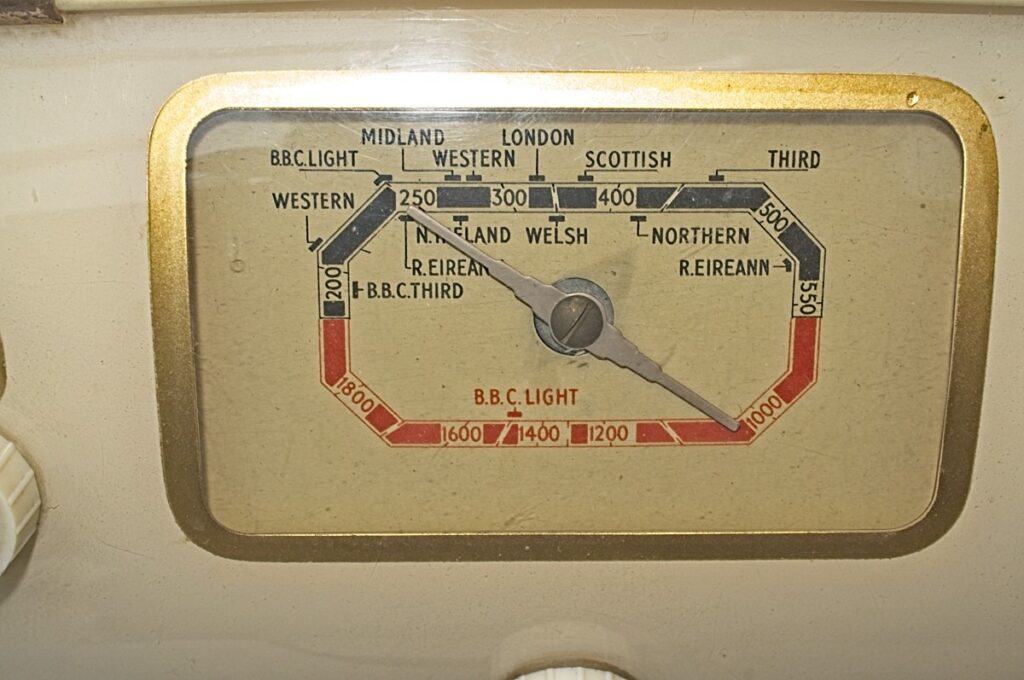
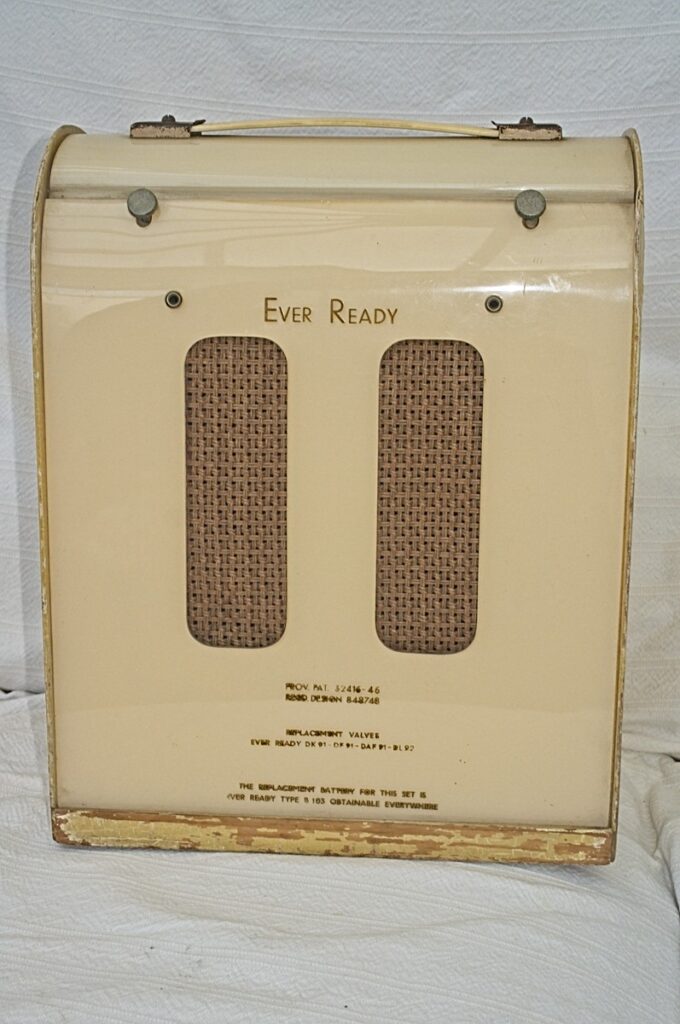
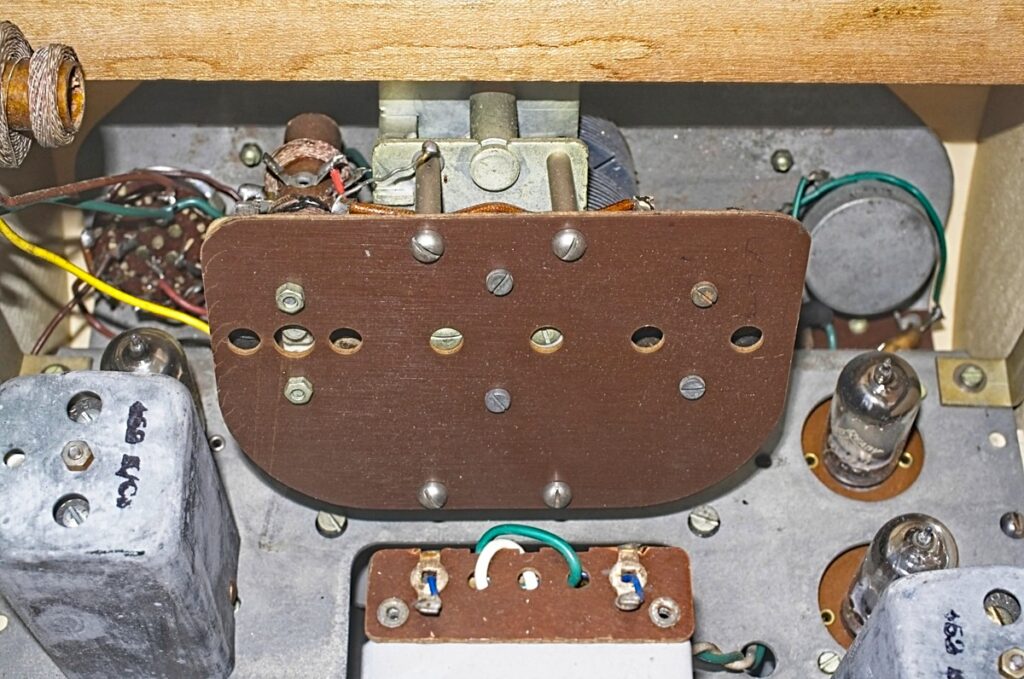
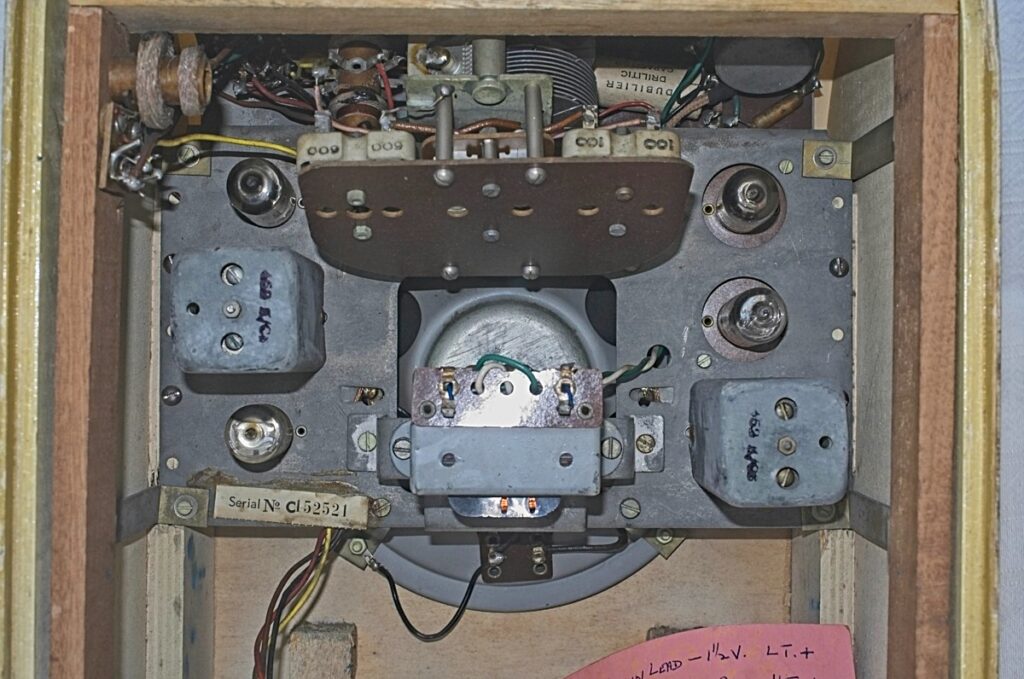
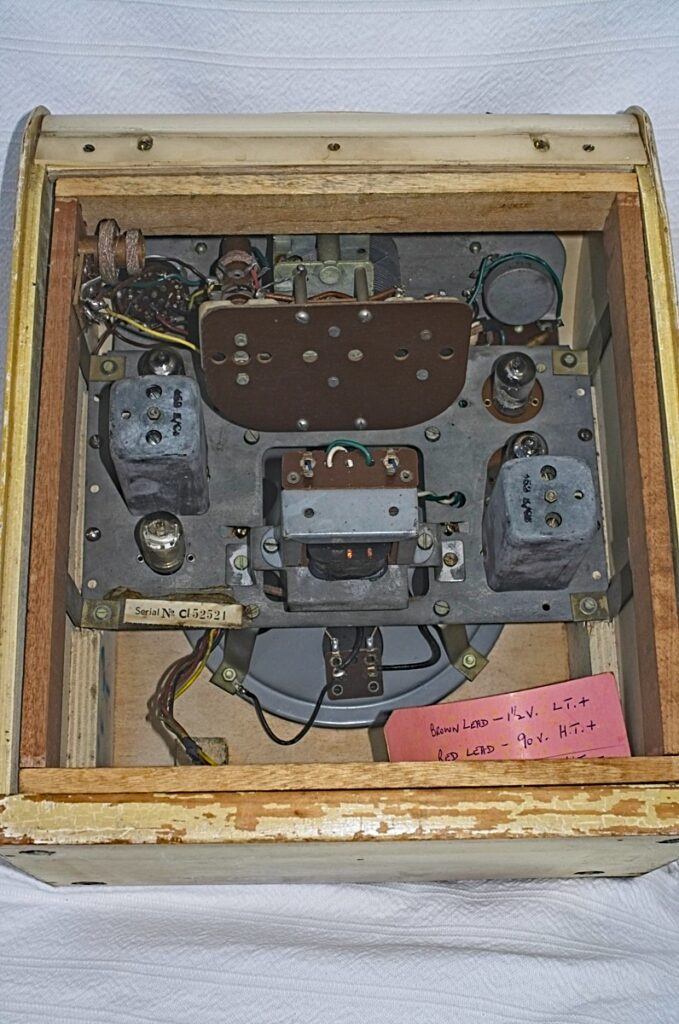
About the Ever Ready Type C vintage radio set
The Ever Ready Type C is a battery powered, valve radio, which uses small 7 pin valves with a low LT current requirements leading to a longer battery life. At the time the set was made these were the latest in low power electronics and made the set more economical than earlier versions of the set.
Interestingly, on the back panel of the set there is some text which says,
“The replacement battery for this set is Ever Ready Type B103 obtainable everywhere.”
I wish that were still true – it would be much easier to test the set!
It appears there were several variants of the Type C radio made by Ever Ready, and I’m not exactly certain which version I have.
In the Radio & Television servicing ‘bible’ Volume 1, which deals with radio sets produced in 1953, there are two versions, model C/E and model C/A. The serial number of my copy of the radio, which is C152521 suggests I have a C/E model, but there doesn’t seem to be huge differences between the two versions C/E and C/A.
I have seen a version on eBay which uses an earlier version of battery valve, however. The internal photos of that model showed what seemed to be Octal valves rather than the small B7G series valves fitted to this set.
It’s also true however, that the radio doesn’t actually have written on it anywhere what the actual model number is, so I’m just going by the physical look of the set – it may be that it’s a slightly earlier or later version of the Type C.
Ever Ready Type C Construction
The set is constructed in both a conventional manner and in a revolutionary way. Conventional because the basic framework of the set is made from a plywood frame with softwood struts for support, and revolutionary because the front and back are made with curved perspex giving the wonderfully fluid design and shape.

The sides of the unit, although made from plywood, are painted with a mottled paint effect that adds to the modern look of the set.
Internally, again, the set is conventional with a steel chassis bolted over the forward facing loudspeaker and the RF circuits constructed on another chassis mounted under the control panel at the top. At the bottom of this RF chassis, under the tuning capacitor, are a series of trimmer capacitors and coils that are used to align the set, which looks like it would be quite a simple operation because access would be easy.
The valves are mounted in a U shape around the chassis and follow the pattern of the signal flow, with the local oscillator / frequency changer at the top left followed by the IF amplifier, below it, and the audio stages on the other side from bottom to top.
The chassis also shows some of the signs that there were different models of the Type C produced because the two audio valves are mounted on B7G sockets that are fitted below the chassis with the actual holes in the metal being the size of an Octal valve.
The internal aerial is constructed as a frame just inside the back panel and the impression given is that the whole chassis can be withdrawn from the case by removing the screws that hold it, after the front panel knobs are removed. I’ll confirm that when I add the second part of this article that will deal with repair and refurbishment.
The large cabinet allows the set to be fitted with quite a big loudspeaker, I would guess about 6 inches, so I suspect that the set probably sounds rather good when fed with a strong signal((well good within the limits of AM radio)).
Ever Ready Type C Control Layout

The controls on the Ever Ready Type C are laid out rather well.
The set is turned on with a switch to the right of the tuning dial which has a central position of ‘off’, and then a clockwise turn will switch the radio to long wave or an anticlockwise turn will switch it to medium wave.
The two wave band positions on the switch are coloured differently, red for long wave and black for medium wave, and the tuning scale matches these colours, so it’s easy to see which scale will be applied. To tune the set to a particular station, the tuning knob under the scale is turned.
To set the volume, the knob to the left of the scale is set.
The advantage of combining the On/Off action with the wave change rather than the volume control, which many sets did, is that once you’ve set the volume for normal listening it doesn’t need to be altered when the set is turned on.
The only other ‘control’ would be the orientation of the radio which would need to be turned so the radio picked up the maximum signal on the loop aerial.
Ever Ready Type C vintage radio general specifications and circuit.
General Specifications
- Battery powered with one combined LT/HT battery supplying 1.5V and 90V.
- Manufactured in about 1953
- Covered Medium Wave and Long Wave
- Four valve, Superhet design
- IF Frequency 452 kHz
- Internal Loop aerial
- Very fluid, attractive design in Perspex and plywood
- Carrying handle for portability
- Large case and speaker for excellent sound quality
- Serial Number: C152521
Circuit diagram for the Type C valve radio
I’ve included a scan of the circuit from the Radio & Television servicing manual for this set((This comes from the Radio & Television servicing manual mentioned above, and I’ve included it on the basis that it is general information and doesn’t break copyright, however, if it turns out his is incorrect I will, of course, remove this image)).
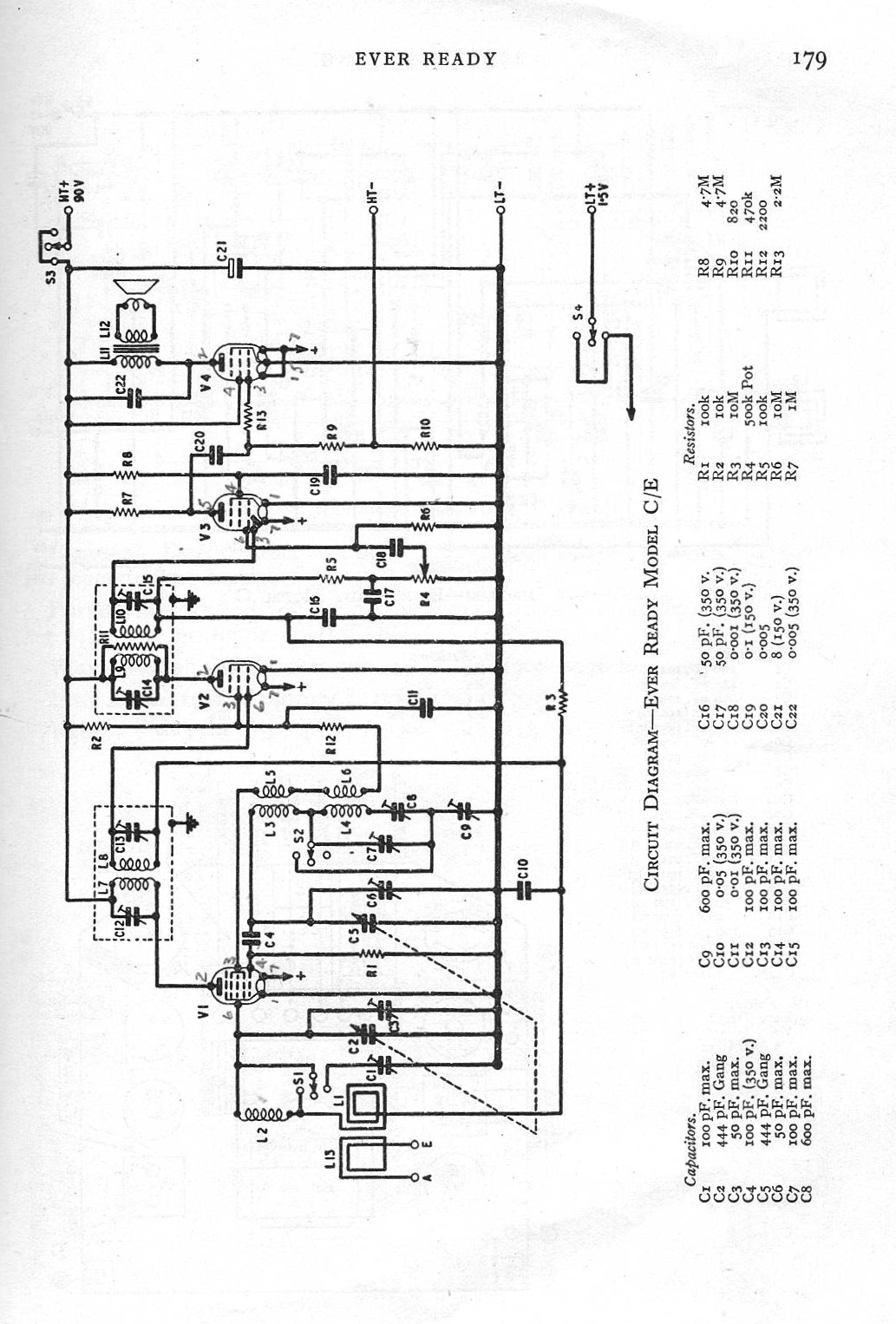
Initial thoughts on the Type C vintage valve radio.
As I said at the start of this piece I think this radio is an interesting and quite different design from many of the sets produced in the early 1950s. I like the use of Perspex to give the set its unique shape, and I suspect the larger speaker and case would lead to a good sound within the confines of AM radio, which limited the audio bandwidth to about 40Hz to 5kHz.
The use of a single battery is a convenience for the user, but also leads to the possibility of the battery becoming exhausted for one purpose whilst still OK for the other, i.e. the LT battery could become dead whilst the HT battery still had life in it. I wonder if Ever Ready constructed the battery so the life of each part was approximately the same based upon the circuit being supplied?
I tried to find the original sale price for this set but couldn’t find any information online about that – if anyone has any original magazines or another source which would supply that information, I’d be interested to know what the set sold for – you can deduce quite a lot from the sale price as to the market the manufacturer was aiming for with the set.
The next part of this short series will look at the refurbishment and servicing of this radio – look out for that in a few weeks time.
Discover more from Everything Vintage
Subscribe to get the latest posts sent to your email.

